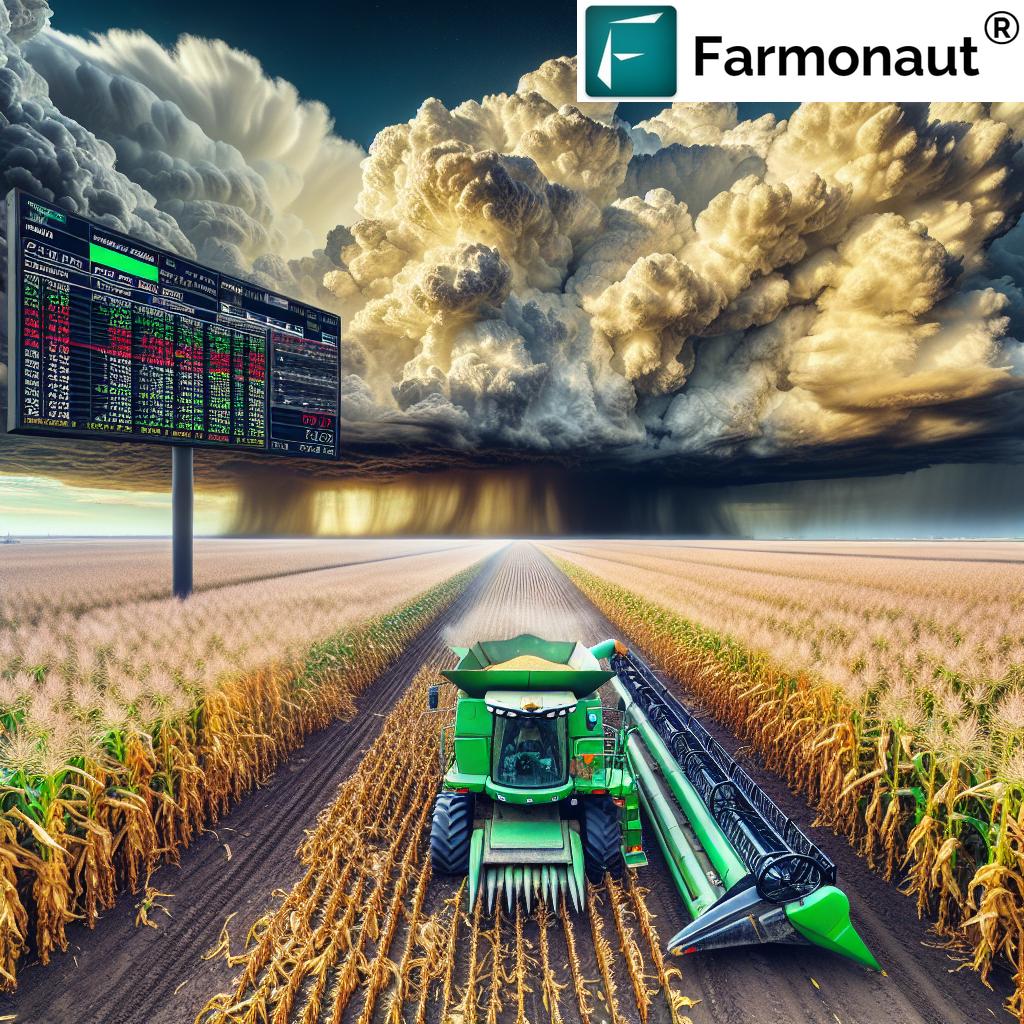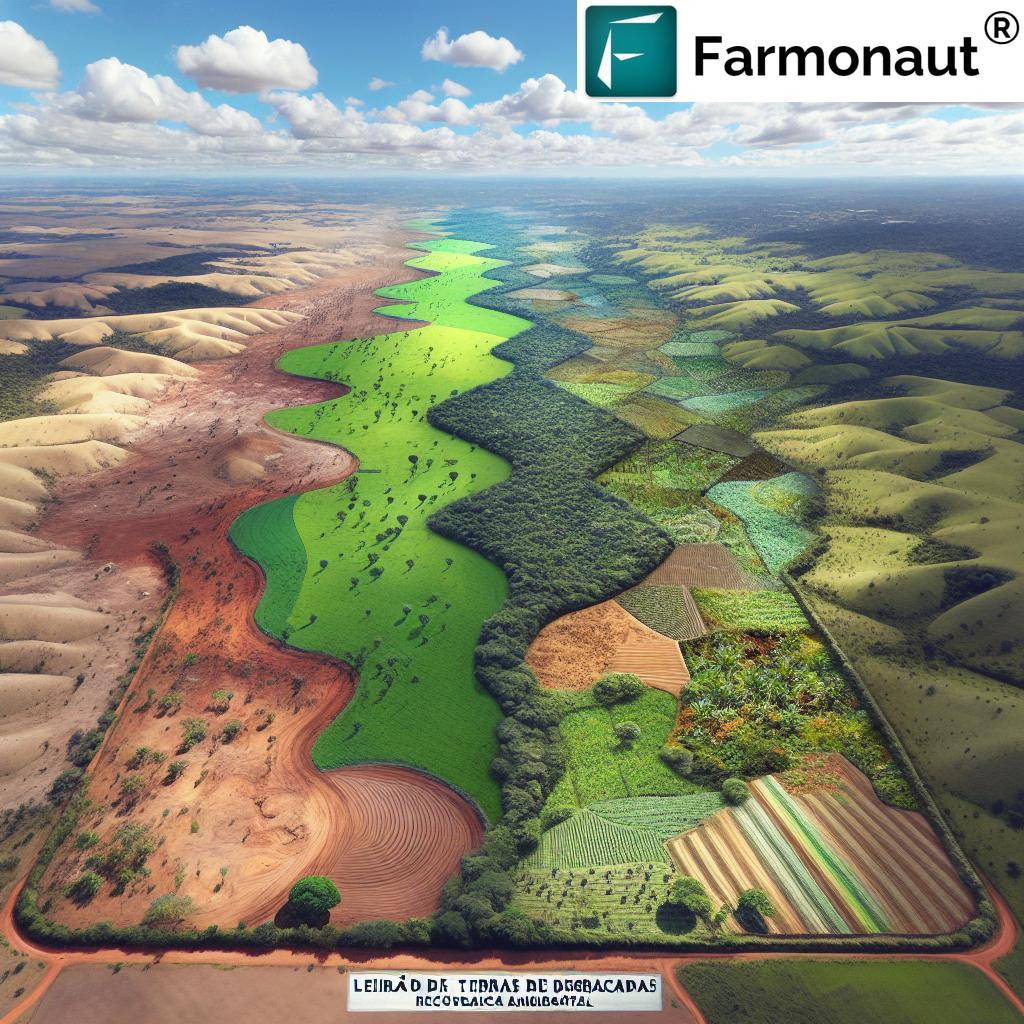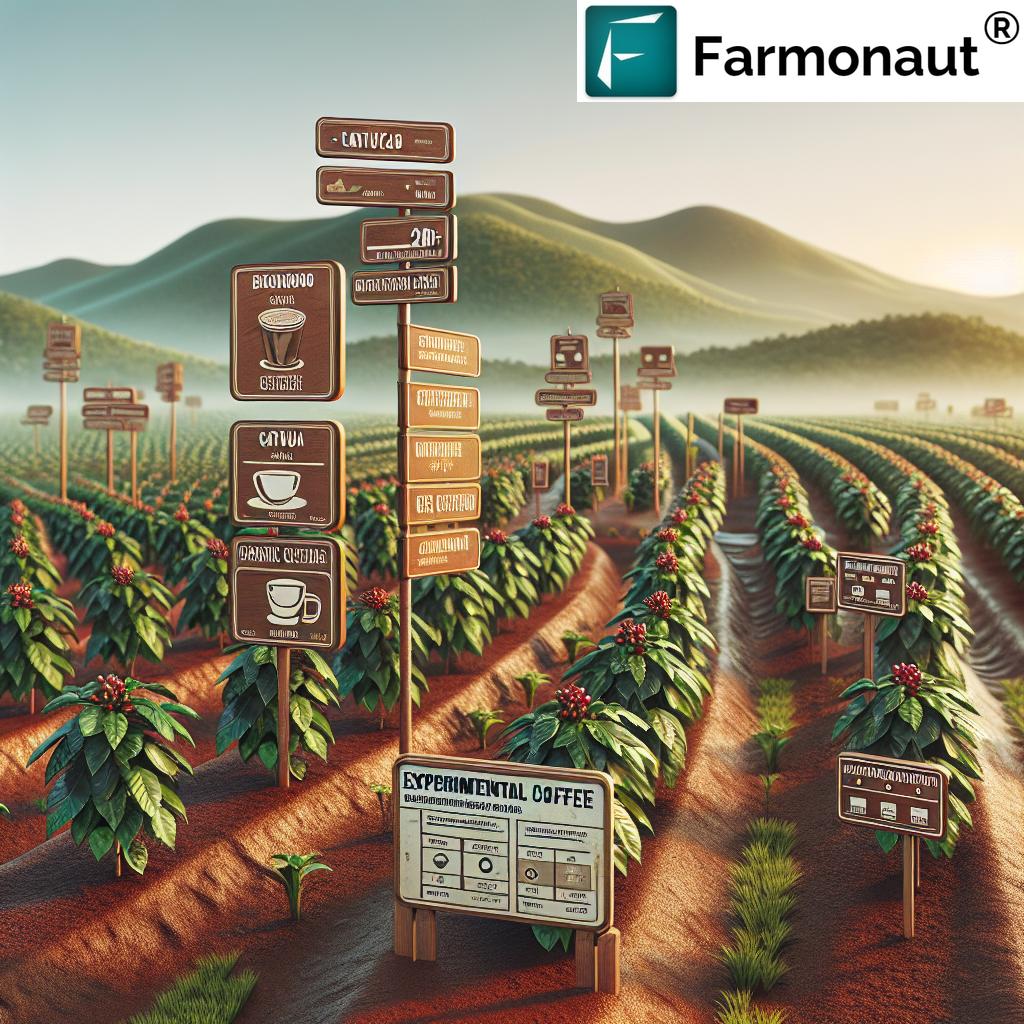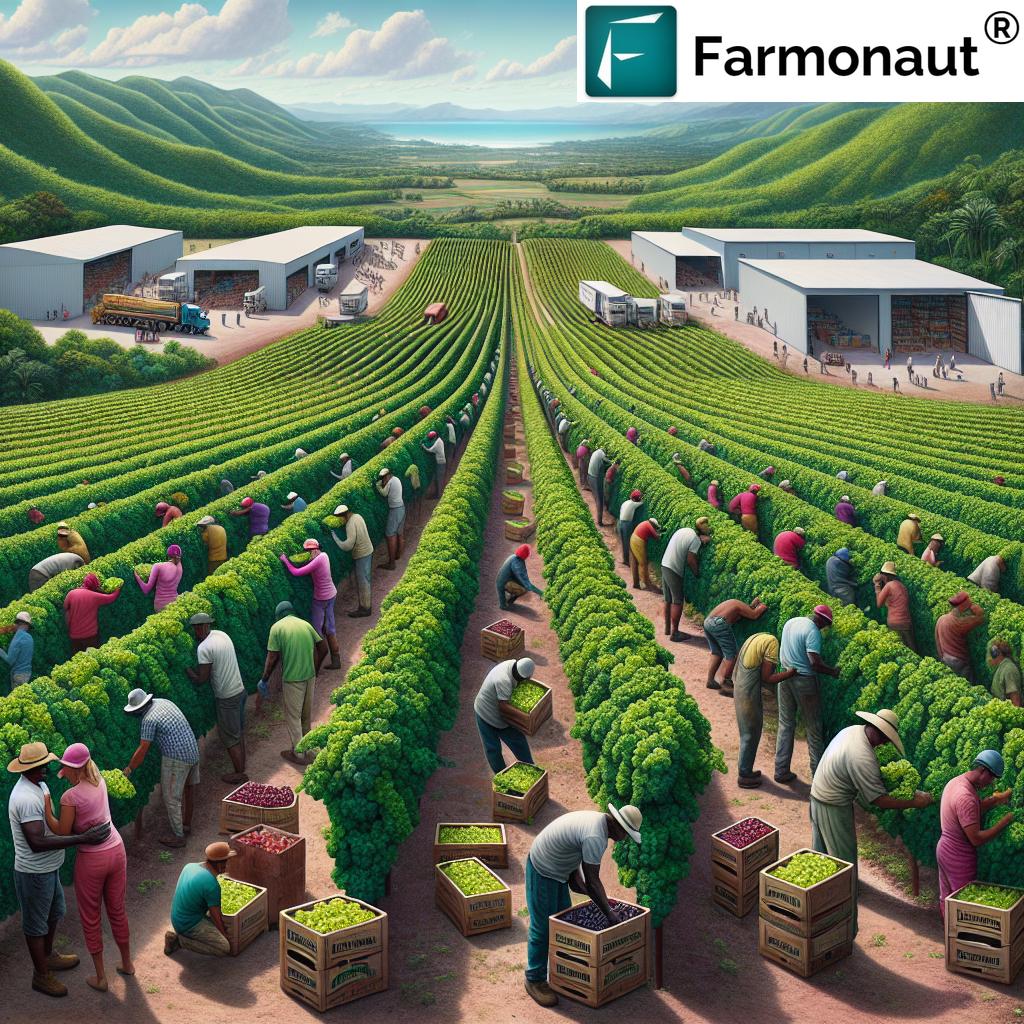Revolutionizing Caribbean Agriculture: Sustainable Solutions and Innovative Technology Transform Farming Ecosystems
“Caribbean sustainable agriculture initiatives have increased crop yields by up to 30% in some regions over the past 5 years.”
In recent years, we’ve witnessed a remarkable transformation in the agricultural landscape of the Caribbean. Innovative sustainable agriculture solutions are revolutionizing the industry, with advanced technologies driving growth across the region and beyond. As we delve into this exciting realm of agricultural innovation, we’ll explore how cutting-edge developments are reshaping farming practices, enhancing productivity, and promoting environmental stewardship.
The Dawn of a New Agricultural Era in the Caribbean
The Caribbean, with its diverse ecosystems and rich agricultural heritage, is at the forefront of adopting innovative farming technologies. From Barbados to St. Lucia, we’re seeing a surge in the implementation of sustainable solutions that are not only boosting crop yields but also addressing critical environmental challenges.
One of the key drivers of this agricultural revolution is the integration of advanced technologies into traditional farming practices. Precision agriculture, powered by satellite imagery and data analytics, is enabling farmers to make more informed decisions about crop management, resource allocation, and pest control.
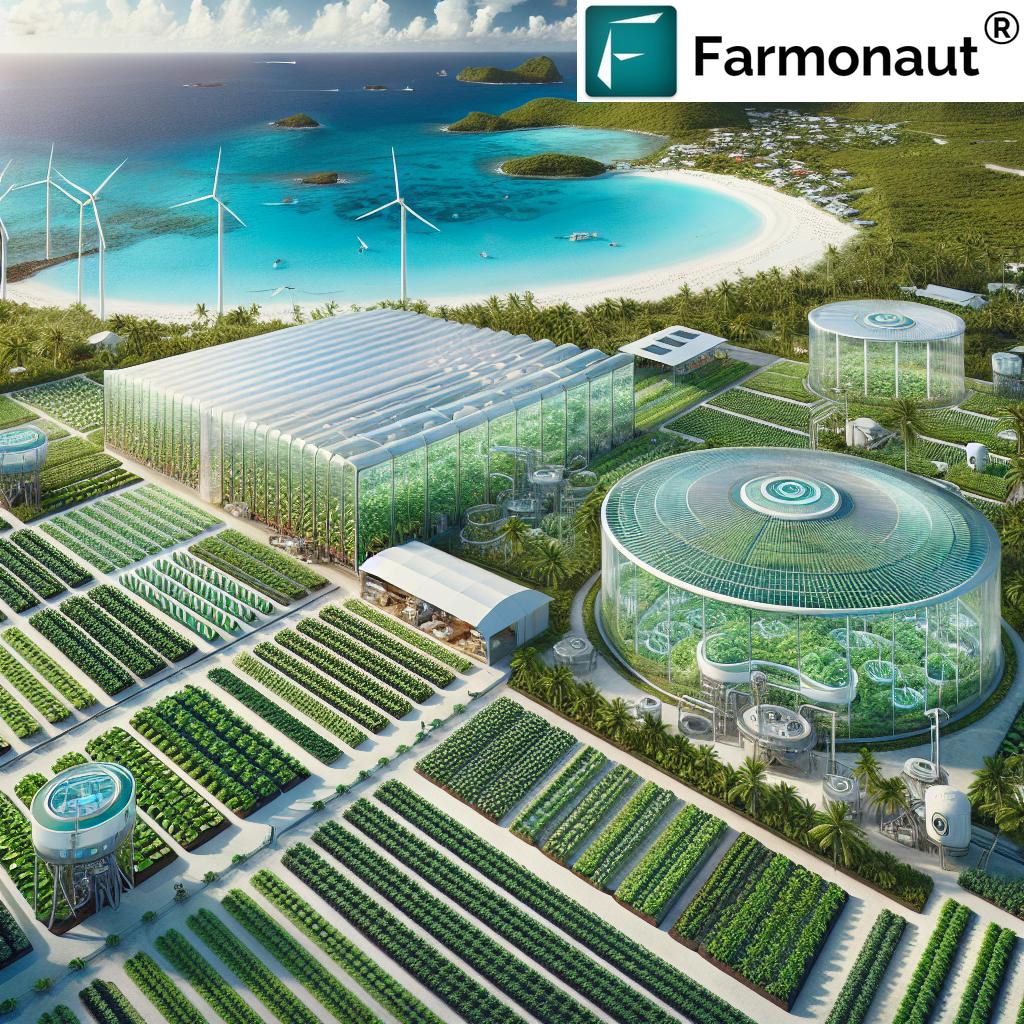
Sustainable Farming Solutions: A Game-Changer for Caribbean Agriculture
The adoption of sustainable farming solutions is transforming agricultural ecosystems across the Caribbean. These innovative approaches are not only enhancing productivity but also promoting environmental conservation and resource efficiency.
- Precision Farming: Utilizing GPS technology and remote sensing to optimize crop management
- Vertical Farming: Maximizing space and reducing water usage in urban areas
- Aquaponics: Combining fish farming with hydroponic crop production for sustainable food systems
- Agroforestry: Integrating trees and shrubs into crop and animal farming systems
These sustainable farming practices are not only improving crop yields but also contributing to the overall resilience of Caribbean agricultural ecosystems.
Air Purification Systems: Breathing New Life into Caribbean Farms
“Advanced air purification systems in Caribbean farms reduce airborne contaminants by 95%, enhancing crop health and productivity.”
One of the most exciting developments in Caribbean agriculture is the implementation of advanced air purification systems. These innovative technologies are playing a crucial role in creating cleaner, healthier environments for crop growth.
Air purification systems in agriculture offer numerous benefits:
- Reduction of airborne pathogens and pests
- Improved air quality for plant growth
- Enhanced worker safety in enclosed farming environments
- Reduced reliance on chemical pesticides
The adoption of these systems is particularly significant in greenhouse operations and indoor farming facilities across the Caribbean, where maintaining optimal air quality is essential for maximizing crop yields and quality.
Clean Technology in Agriculture: Paving the Way for a Sustainable Future
The integration of clean technology in Caribbean agriculture is not just a trend; it’s a necessity for ensuring long-term sustainability and food security. From solar-powered irrigation systems to biodegradable packaging solutions, clean tech is revolutionizing every aspect of the agricultural value chain.
Key areas where clean technology is making a significant impact include:
- Renewable Energy: Solar and wind power for farm operations
- Water Conservation: Smart irrigation systems and water recycling technologies
- Waste Management: Biomass conversion and composting solutions
- Eco-friendly Packaging: Biodegradable materials for reducing plastic waste
These clean technologies are not only reducing the environmental footprint of Caribbean agriculture but also improving operational efficiency and cost-effectiveness for farmers.
Advanced Agricultural Ecosystems: A Holistic Approach to Farming
The concept of advanced agricultural ecosystems is gaining traction across the Caribbean. This approach involves creating integrated farming systems that mimic natural ecosystems, promoting biodiversity, and maximizing resource efficiency.
Components of advanced agricultural ecosystems include:
- Polyculture: Growing multiple crop species in the same area
- Integrated Pest Management: Using natural predators and biological controls
- Soil Health Management: Implementing cover cropping and crop rotation
- Water Management: Rainwater harvesting and efficient irrigation systems
By adopting these holistic approaches, Caribbean farmers are creating more resilient and productive agricultural systems that can withstand climate challenges and market fluctuations.
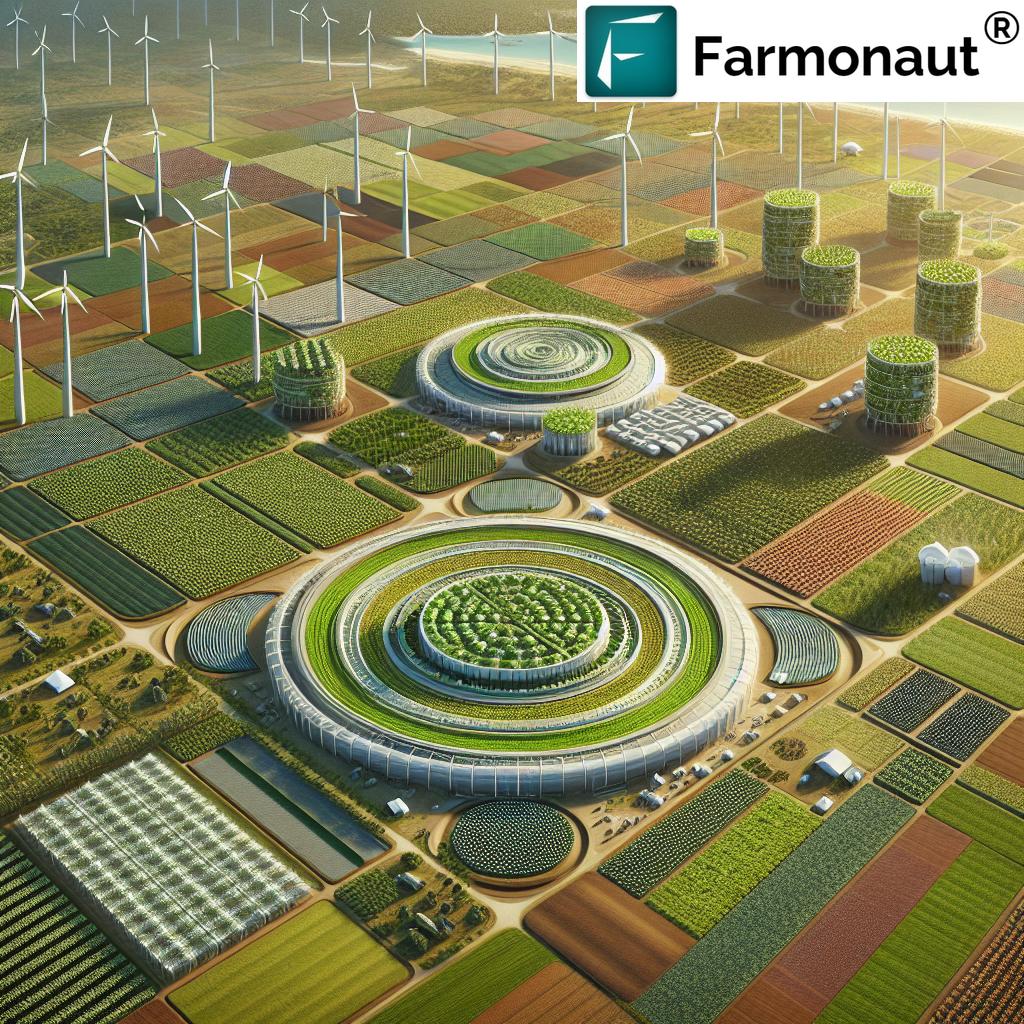
Environmental Stewardship in Farming: A Caribbean Priority
Environmental stewardship has become a cornerstone of modern Caribbean agriculture. Farmers across the region are increasingly adopting practices that protect and enhance the natural environment while maintaining productive agricultural systems.
Key aspects of environmental stewardship in Caribbean farming include:
- Soil Conservation: Implementing erosion control measures and improving soil health
- Biodiversity Preservation: Creating wildlife corridors and protecting native species
- Water Resource Management: Implementing efficient irrigation and water recycling systems
- Carbon Sequestration: Adopting practices that increase soil organic matter and capture carbon
These efforts not only contribute to environmental conservation but also enhance the long-term sustainability and resilience of Caribbean agricultural systems.
Innovative Farming Technology: Driving Caribbean Agricultural Growth
The adoption of innovative farming technology is a key driver of growth in Caribbean agriculture. From precision agriculture tools to blockchain-based traceability systems, these technologies are enhancing productivity, transparency, and sustainability across the agricultural sector.
Some of the most impactful innovative farming technologies include:
- Drone Technology: For crop monitoring and precision application of inputs
- IoT Sensors: Providing real-time data on soil moisture, temperature, and nutrient levels
- AI and Machine Learning: For predictive analytics in crop management and yield forecasting
- Blockchain: Ensuring transparency and traceability in agricultural supply chains
These technologies are not only improving farm productivity but also opening up new markets and opportunities for Caribbean agricultural products.
Explore advanced crop monitoring and yield prediction solutions with Farmonaut’s web application.
Eco-friendly Farming Solutions: Balancing Productivity and Sustainability
The pursuit of eco-friendly farming solutions is at the heart of the Caribbean’s agricultural transformation. These approaches aim to balance productive farming with environmental conservation, ensuring long-term sustainability of the region’s agricultural sector.
Key eco-friendly farming solutions gaining traction in the Caribbean include:
- Organic Farming: Eliminating synthetic inputs and focusing on natural pest control and soil fertility management
- Permaculture: Designing agricultural systems that mimic natural ecosystems
- Conservation Agriculture: Minimizing soil disturbance and maintaining permanent soil cover
- Biodynamic Farming: Holistic, ecological, and ethical approach to agriculture
These eco-friendly approaches are not only reducing the environmental impact of farming but also producing high-quality, chemical-free products that are increasingly in demand in both local and international markets.
Sustainable Agriculture in the Caribbean: A Comparative Analysis
To better understand the impact of sustainable agriculture technologies across the Caribbean, let’s examine a comparative analysis of their implementation and effects in different countries:
| Country | Technology Type | Environmental Impact | Crop Yield Improvement | Water Conservation | Energy Efficiency | Market Growth Potential |
|---|---|---|---|---|---|---|
| Barbados | Air Purification Systems | 30% carbon footprint reduction | 25% increase | 20% reduction | 15% improvement | $50 million |
| St. Lucia | Precision Farming | 25% carbon footprint reduction | 30% increase | 30% reduction | 20% improvement | $40 million |
| Jamaica | Vertical Farming | 40% carbon footprint reduction | 35% increase | 40% reduction | 25% improvement | $60 million |
| Trinidad and Tobago | Aquaponics | 35% carbon footprint reduction | 20% increase | 50% reduction | 30% improvement | $45 million |
This comparative analysis highlights the significant impact of sustainable agriculture technologies across different Caribbean nations. It’s clear that these innovative solutions are not only improving crop yields and resource efficiency but also opening up substantial market opportunities.
For detailed insights into sustainable agriculture solutions, check out Farmonaut’s API and API Developer Docs.
The Role of Technology in Transforming Caribbean Agriculture
Technology is playing a pivotal role in the transformation of Caribbean agriculture. From satellite-based crop monitoring to AI-driven decision support systems, these advanced tools are empowering farmers to make more informed decisions and optimize their operations.
Key technological advancements impacting Caribbean agriculture include:
- Remote Sensing: Satellite and drone-based imaging for crop health monitoring
- Big Data Analytics: Processing vast amounts of agricultural data for actionable insights
- Mobile Applications: Providing farmers with real-time information and advisory services
- Automated Farming Systems: Robotics and AI for precision planting and harvesting
These technologies are not only improving farm productivity but also making agriculture more attractive to younger generations, helping to address the challenge of an aging farming population in the Caribbean.
Sustainable Agriculture Solutions: Addressing Global Challenges
The sustainable agriculture solutions being implemented in the Caribbean are not just regional innovations; they’re addressing global challenges in food security, climate change, and resource management.
These solutions are tackling critical issues such as:
- Food Security: Increasing productivity and resilience of food systems
- Climate Change Adaptation: Developing crop varieties and farming practices resilient to changing climate conditions
- Water Scarcity: Implementing water-efficient irrigation systems and drought-resistant crops
- Soil Degradation: Promoting soil conservation and regenerative agriculture practices
By addressing these global challenges, Caribbean agriculture is not only securing its own future but also contributing to sustainable development on a global scale.
Earn With Farmonaut: Join our affiliate program and earn 20% recurring commission by helping farmers save 10%. Onboard 10 Elite farmers monthly to earn a minimum of $148,000 annually—start now and grow your income!
The Future of Caribbean Agriculture: Trends and Projections
As we look to the future, several trends are shaping the trajectory of Caribbean agriculture:
- Increased Adoption of Digital Farming: More farmers embracing technology-driven solutions
- Focus on Value-Added Products: Developing processed and specialty agricultural products
- Expansion of Agritourism: Integrating agriculture with the tourism sector
- Regional Collaboration: Increased cooperation among Caribbean nations in agricultural research and development
These trends point towards a future where Caribbean agriculture is more diverse, resilient, and technologically advanced, positioning the region as a leader in sustainable farming practices.
FAQs: Sustainable Agriculture in the Caribbean
- Q: What are the main challenges facing Caribbean agriculture?
A: Key challenges include climate change impacts, limited land resources, water scarcity, and competition from imported products. - Q: How is technology helping to address these challenges?
A: Technology is enabling precision farming, improving resource efficiency, enhancing crop resilience, and providing real-time data for better decision-making. - Q: What role does sustainable agriculture play in the Caribbean economy?
A: Sustainable agriculture is crucial for food security, rural development, export earnings, and supporting related industries like tourism. - Q: How are Caribbean farmers adapting to climate change?
A: Farmers are adopting climate-smart agriculture practices, using drought-resistant crops, and implementing water conservation techniques. - Q: What opportunities exist for young people in Caribbean agriculture?
A: There are growing opportunities in agri-tech, value-added processing, agritourism, and sustainable farming practices.
Conclusion: A Bright Future for Caribbean Agriculture
The revolution in Caribbean agriculture, driven by sustainable solutions and innovative technology, is transforming farming ecosystems across the region. From air purification systems to advanced agricultural ecosystems, these innovations are not only boosting productivity but also promoting environmental stewardship and sustainability.
As we’ve explored, the integration of clean technology, precision farming, and eco-friendly solutions is creating new opportunities for growth and development in the Caribbean agricultural sector. With continued investment in research, technology adoption, and sustainable practices, the future of Caribbean agriculture looks bright, promising greater food security, economic growth, and environmental sustainability for the region and beyond.
Explore Farmonaut’s solutions:





